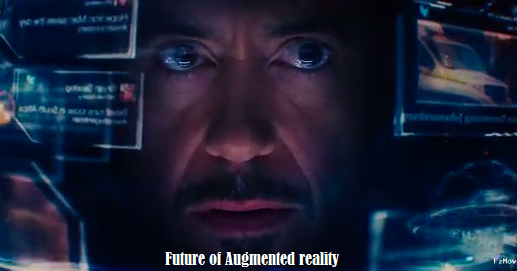Augmented Reality has taken fire recently and a number of supported devices and apps are already available for consumers and commercial users. With this, more and more people have started taking keen interest making a career in virtual and augmented reality developments. And recently Facebook banks on virtual reality as the future of socializing.
There are many platforms available to start with. Obviously and for sure, Android and iOS are the main two platforms will gain more attention in coming years and options such as Unity3d.com, Qualcomm's Vuforia framework are great places to start with.
Creator by Metaio is great for learning how Augmented reality devices work. It teaches how to overlay digital material over displays. It requires very less coding experience and it is much entertaining. For deep understanding, you need knowledge of html5, javascript called AREL which will help you create supported apps. Some of them are free while others need attributions.

AR works with many possibilities. Information layered on 2D or 3D, ability to animate objects, ability to interact with environments etc. so there are different tools to be used accordingly. See which one you choose to learn first.
AR is still in its extreme development stage, so one need to understand the hardware and processing need of the equipment such as mobile standalone or PC supported etc. AR needs a lot of environment library e.g. see Vuforia where things are engaged on the basis of those environments.
Vuforia Developer is an excellent portal among many SDK's out there. You can certainly and should try with this first. It is only supported for mobile apps only and not for PC so far.
AR is a vast subject. Right from the environment library used for pattern recognition to utilizing sensors including GPS, gyro, so many things can be coupled together to generate much advance augmented output. Currently, Vuforia by Qualcomm, ARToolkit, WikiTude, LayAR and Kudan are top five choices for easily starting developing Augmented reality Apps.
There are many platforms available to start with. Obviously and for sure, Android and iOS are the main two platforms will gain more attention in coming years and options such as Unity3d.com, Qualcomm's Vuforia framework are great places to start with.
Creator by Metaio is great for learning how Augmented reality devices work. It teaches how to overlay digital material over displays. It requires very less coding experience and it is much entertaining. For deep understanding, you need knowledge of html5, javascript called AREL which will help you create supported apps. Some of them are free while others need attributions.

AR works with many possibilities. Information layered on 2D or 3D, ability to animate objects, ability to interact with environments etc. so there are different tools to be used accordingly. See which one you choose to learn first.
AR is still in its extreme development stage, so one need to understand the hardware and processing need of the equipment such as mobile standalone or PC supported etc. AR needs a lot of environment library e.g. see Vuforia where things are engaged on the basis of those environments.
Vuforia Developer is an excellent portal among many SDK's out there. You can certainly and should try with this first. It is only supported for mobile apps only and not for PC so far.
AR is a vast subject. Right from the environment library used for pattern recognition to utilizing sensors including GPS, gyro, so many things can be coupled together to generate much advance augmented output. Currently, Vuforia by Qualcomm, ARToolkit, WikiTude, LayAR and Kudan are top five choices for easily starting developing Augmented reality Apps.







